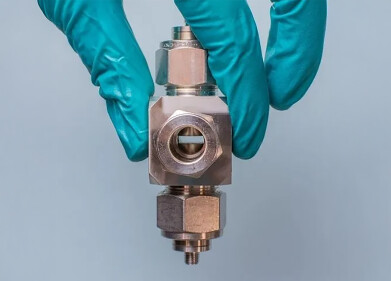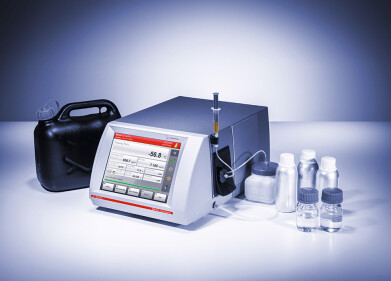Analytical Instrumentation
A strong commitment to sustainability in fuel testing
Aug 10 2023
Laboratories play a pivotal role in fuel testing, scientific research, innovation, and problem-solving across diverse fields. However, their extensive use of energy, materials, and consumables has raised concerns about their environmental impact. In recent years, there has been a growing emphasis on incorporating sustainable practices into laboratory operations, including the development of environmentally friendly ways of conserving natural resources.
CFR Engines Inc. is committed to sustainability and has identified ways to improve the usage of natural water that is used in the recirculating system to cool the engine. In most cases, laboratories are utilising potable water with wastage of 5-6 litres per minute or on average – 2400 L per 8-hour shift – per engine.
CFR has explored key areas of improvement and innovative solutions that can lead to a greener, more environmentally sustainable – and cost-effective laboratory ecosystem:
CFR Engines generate up to 2400L per 8-hour shift, per engine. Implementing water reduction strategies, such as implementing an integrated water recirculating system, would substantially decrease the environmental burden.
CFR systems are built with modular components that can be easily replaced or repaired to extend their useful life and contribute to a circular economy.
CFR has Integrated a water-cooling recirculating system into our current Engine Air Control System (EACS). This sustainability system interfaces with our XCP® TECHNOLOGY for ease of management and efficiency. CFR’s most recent technology advancement furthers our commitment to creating a more environmentally sustainable product, allowing CFR users to conserve water wastage.
Environmental sustainability is no longer an option; it is a responsibility that laboratories must embrace, as well as manufacturers alike. By focusing on energy efficiency, waste reduction, digitalization, and responsible practices, laboratories can improve their environmental impact and contribute to a more sustainable future. Embracing these improvements not only benefits the planet, it also fosters a culture of responsible innovation in the scientific community. Together we can create a more environmentally sustainable laboratory ecosystem for the betterment of all.
Digital Edition
PIN 25.5 Oct/Nov 2024
November 2024
Analytical Instrumentation - Picturing Viscosity – How Can a Viscometer or a Rheometer Benefit You? - Sustainable Grease Formulations: Evaluating Key Performance Parameters and Testing Method...
View all digital editions
Events
Nov 26 2024 Paris, France
Nov 26 2024 Amsterdam, Netherlands
Nov 27 2024 Istanbul, Turkey
Biogas Convention & Trade Fair 2024
Nov 27 2024 Hanover, Germany
Dec 03 2024 Dusseldorf, Germany



















